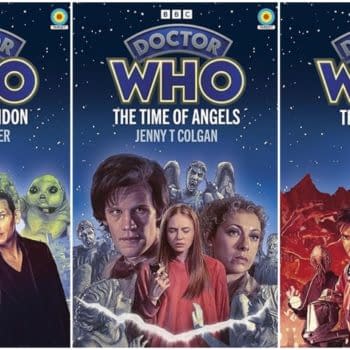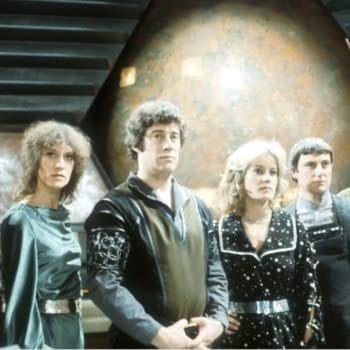Posted in: BBC, Disney+, TV | Tagged: david tennant, doctor who, jodie whittaker, matt smith
Doctor Who: The Dilemma of Keeping a 60-Year-Old Franchise Fresh
Doctor Who has two eras and two sets of fans who now complain that the current era isn't as fresh or new. So what can a 60-year-old show do?
Doctor Who is in an oddly unique place out of every other TV series in the world. It's been around for over sixty years and has been revamped not once but twice now, each time for a new generation, and with a show that's been around for that long, is it getting too old to feel fresh?

The Two Eras of Doctor Who – and Now, a Third!
When Doctor Who was unofficially cancelled in 1989 (the BBC never admitted it was officially cancelled), it had been around since 1963. When he revived and revamped the series in 2005, Russell T. Davies said as much as he and legions of fans still loved the show, it was taken off the air because it had gotten old. He freshened it up with not only a bigger budget for 21st-century production values and special effects but also a post-Buffy approach to storytelling, pushing emotions more to the fore and casting major British acting talent, both A-list and up-and-coming. He turned Doctor Who into an A-List show that attracted a new generation of kids and female fans to watch it, hitting gold with the casting of David Tennant. Steven Moffat kept that moment going for a few years by building on that foundation with Matt Smith and Karen Gillen as the Doctor and Amy Pond. By the time Chris Chibnall took over as showrunner, the series had begun to feel staid, not helped by some lackluster scripts despite maintaining enough of a core audience. Then Davies returned to usher the series into its Disney+ era, and he had to refresh the show.
Two Schools of Complaining Fans
The Disney+ era of Doctor Who is a revamp of the series with an even bigger budget than before and still popular, but longtime fans are now complaining. Again. Doctor Who now has two different generations of fans: the ones who love the original version that ran from 1963 to 1989 and the ones who loved the revival that began in 2005, whose era could be said to have ended in 2022 with Jodie Whittaker as the Doctor. Now those fans are complaining that the series has become too emo and jokey and repeating tropes they grew up watching as children in the 2000s. Those fans now complain like fans of the classic era do. It comes down to the same thing: "It's not like it used to be, the way we like it."
Where Does it Go from Here?
The older and longer a TV series runs, the harder it gets to keep it fresh and new. The most important thing is to attract new viewers, without which a series can't survive. The question is, how do you keep Doctor Who fresh and new to attract new viewers instead of longtime fans? The latter is the most important factor. New viewers wouldn't know about old tropes. The most important part is to make the stories feel like they matter, and not just the usual "save the universe" or "reverse the destruction of the universe" tropes. Why would the destruction of the universe matter if you don't see anyone that matters in danger? Davies and Moffat have been better at that than Chibnall. They're friends and peers and they write the series along the same dynamics. The question is, does the show need new blood? A new perspective? What would that be? And who could possibly bring that? There are plenty of wrong answers, but the right answers are out there, and we haven't seen them yet. Moffat has said Doctor Who is designed to be robust enough to run forever, flexible enough to keep evolving for each era, and it hasn't even arrived at its final form yet.
Doctor Who is streaming on Disney+ outside the UK.














